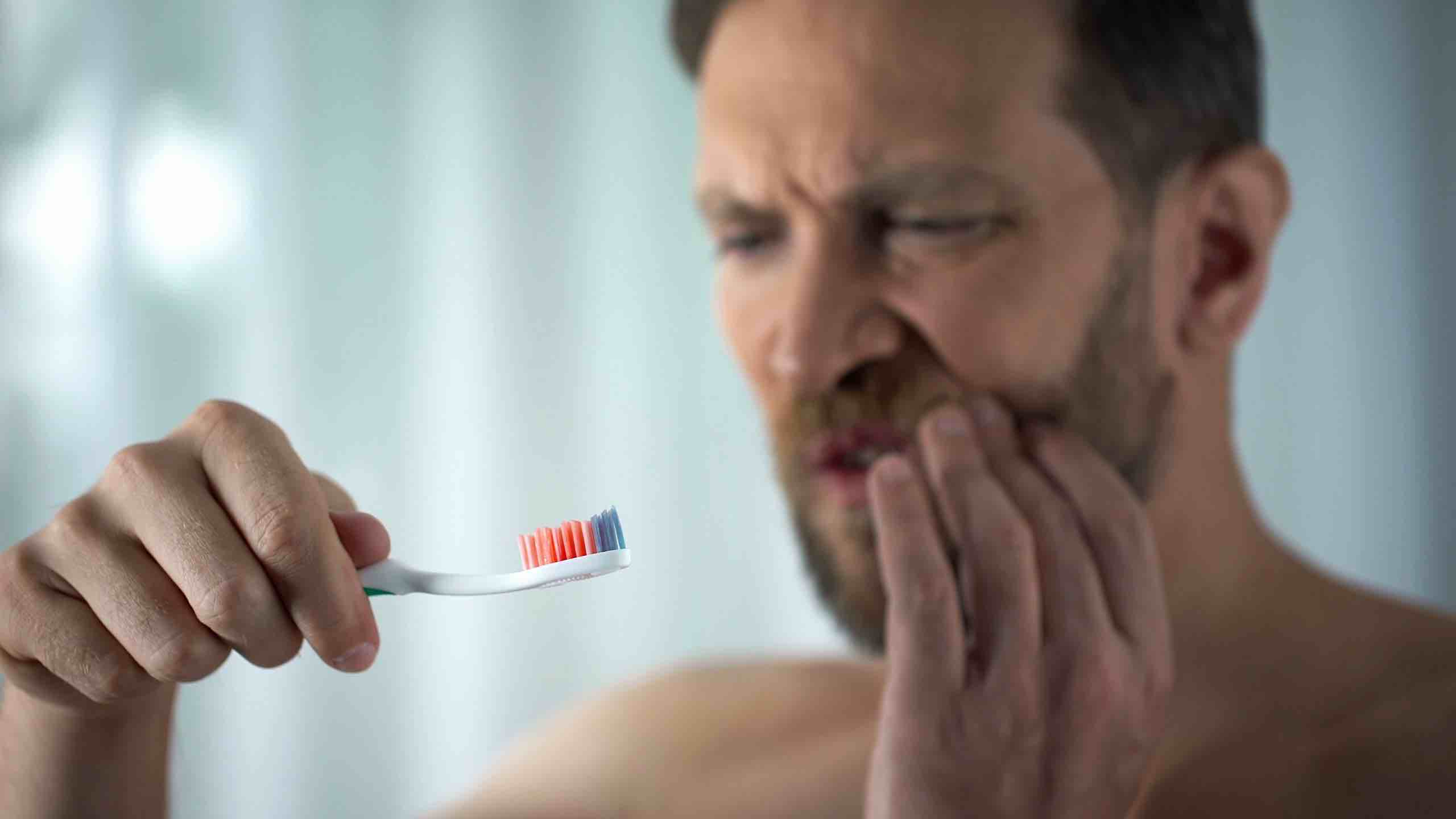Bleeding gums is not normal

by: Dr. Tom Swanlund
Do your gums bleed when you brush?
If you have gums that bleed persistently or easily, it could be a sign of an issue you shouldn’t ignore. See a dental professional as soon as possible to identify the cause.
Bleeding gums and gum disease
Gum disease is one possible reason for bleeding gums. It's common, but not everyone who has it may be aware.
Gum disease in its mild form is called gingivitis. It starts when plaque builds up on your teeth and above or along your gumline.
When plaque isn’t removed, it can irritate your gums and cause inflammation. Gingivitis can result in tender, swollen, and bleeding gums. But the good news is it can be treated. With good oral hygiene habits, you can keep gingivitis from progressing.
Severe gum disease, on the other hand, is also referred to as periodontitis. Periodontitis damages the soft tissue and the gums that keep the teeth in place. Your gums may recede and the bone supporting your teeth may get destroyed, leading to tooth loss if undiagnosed and untreated. Symptoms include unpleasant taste, bad breath, and bite changes. There’s no at-home treatment for periodontitis. Your dentist can diagnose, treat and prevent it from recurring.
How to reverse gingivitis
Good oral hygiene habits are crucial to keeping your gums healthy and reversing gingivitis.
- Brush thoroughly. Be thorough but gentle when brushing your teeth, and be sure to cover all areas possible. Aggressive brushing won’t clean better, it may only hurt your teeth and gums.
- Change your toothbrush regularly. Use a brush with soft bristles to avoid eroding the enamel or the outermost layer of the teeth. Once your brush starts to become frayed, switch to a new one. Frayed or old brush no longer cleans effectively.
- Floss daily. Make flossing a part of your daily routine. It cleans areas where harmful bacteria often breed and which the toothbrush can’t reach.
- Drink plenty of water. Saliva helps restore lost minerals. It also neutralizes acid levels and washes away food particles. One way to encourage salivary flow is by drinking water more often.
- Maintain a balanced diet. You can also slow down gum disease by eating a healthy, balanced diet. Food that’s rich in vitamins and nutrients boosts the immune system and fights off infections.
- Quit smoking. It isn’t easy. But it’s beneficial for reversing gum disease and for keeping your overall health in check. Smokers are more likely to experience gum disease and smoking impairs healing.
- See your dentist regularly. Tartar creates a rough surface that attracts harmful bacteria. Brushing alone isn’t enough to remove it. You need professional hygiene cleanings to break down the stubborn calculus, smooth rough surfaces, and keep bacteria from multiplying. Your dentist will also be able to detect gum disease in the early stage and advise you.
Get your bleeding gums checked today
Bleeding gums isn’t normal, even without soreness. Take action to restore the health of your gums. It isn’t only about your oral health. Several studies suggest that gum disease may also be connected to other health conditions.
See a family dentist in Winnipeg, Manitoba
For more information about diagnosing and treating gum disease, contact our team at
Our friendly dentists at Aqua Dental Wellness in Winnipeg welcome patients of all ages, and we're always happy to assist you with your dental-related concerns.